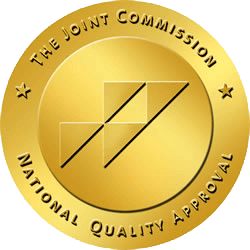Teens are still maturing, meaning they’re inherently prone to making risky decisions. Not only are teens more likely to cave to peer pressure and experiment with drugs and alcohol, but they’re also more prone to experience mood and behavioral changes during addiction. Because addiction is a chronic condition, it almost always requires treatment. Rehabs can offer evidence-based treatments like cognitive behavioral therapy. The benefits of cognitive-behavioral therapy include helping you learn how to manage cravings and make better decisions following treatment. Substance abuse disorders impact nearly 23 million Americans ages 12 and older each year. About 5% of adolescents ages 12 to 17 have a substance abuse disorder but fail to get treatment annually. Substance abuse disorders impair your judgment, lower your inhibitions, and distort your thoughts, feelings, and behaviors. Since the human brain continues to develop until your mid-to-late 20s, addiction can have especially pronounced effects on teens.
Teens and Addiction
23.6% of high school seniors have used an illicit drug within the past year, with another 58.2% consuming alcohol within the last 12 months. This means that substance use and drinking is relatively common among teens. Overall, alcohol, nicotine, and marijuana are the three most commonly used and abused substances among teens. Alcohol can lead to fatal overdoses and physical dependency, while marijuana and nicotine can serve as gateway drugs. Teens who use substances like marijuana and nicotine are more likely to experiment with other drugs, like prescription medications. Some of the most common substances teens abuse include:
- Adderall and Ritalin
- Marijuana
- Prescription opiates, like Vicodin and Percocet
- Benzodiazepines, including Xanax, Klonopin, and Ativan
- Synthetic drugs, like K2 and spice
Drugs and alcohol are neurotransmitter inhibitors, which cause your brain to release a surge of pleasurable chemicals like serotonin, dopamine, and GABA. Once this happens, your brain associates the substance with pleasure, which changes your pleasure and reward center. Your brain also connects people, places and things that remind you of your substance of choice with pleasure, causing you to crave drugs and alcohol when you’re exposed to triggers. The earlier substance abuse disorders are treated, the better your recovery odds are. The benefits of cognitive-behavioral therapy, a popular and effective treatment utilized at rehabs, include helping you learn how to make better choices and manage your symptoms successfully.
The Benefits of Cognitive Behavioral Therapy
The benefits of cognitive-behavioral therapy make it among the best treatments for substance abuse and mental health disorders. Cognitive-behavioral therapy believes that changing negative thoughts and thinking patterns can also change negative behaviors. This makes improving decision making among the many benefits of cognitive-behavioral therapy. Cognitive-behavioral therapy can combine with other evidence-based and holistic treatments. Doing so makes it easy to add to your treatment plan. Since triggers and cravings increase your risk of experiencing a relapse, cognitive behavioral therapy helps you identify triggers and create healthy coping strategies. Cognitive-behavioral therapy is used during individual, group and family counseling. Thus, it is highly versatile. Both inpatient and outpatient rehabs combine cognitive behavioral therapy with other treatments to improve your ability to manage your symptoms and maintain sobriety. Among the other benefits of cognitive-behavioral therapy include that it helps improve your communication skills, which can help you improve your relationships with friends and family members.
Finding the Best Cognitive Therapy Program Today
Struggling with a substance abuse disorder can make it difficult to manage your life, health, and relationships. During addiction, drugs, and alcohol cause you to experience significant changes to your brain chemistry, which can make it difficult to recover without help. Treatment centers can offer evidence-based treatments like cognitive behavioral therapy and provide you with the support, understanding, and tools you need to recover. To learn more about the benefits of cognitive-behavioral therapy, call us today at 877.466.0620.


